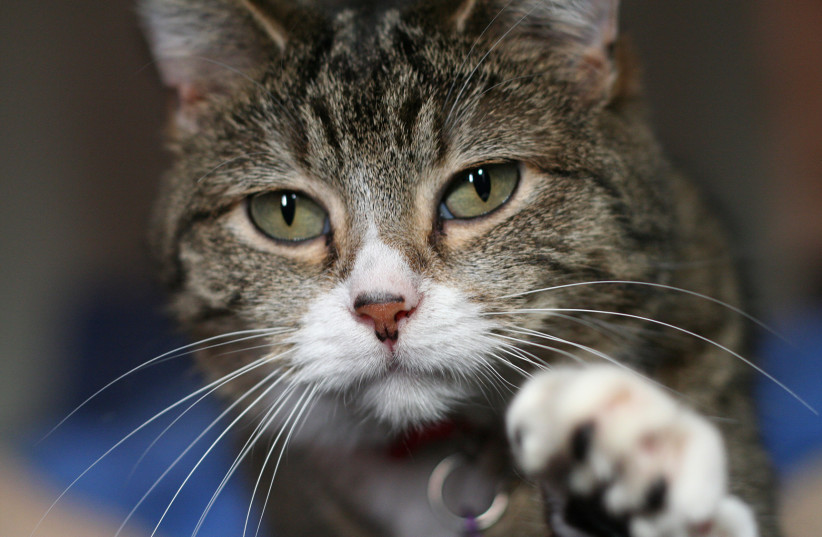Playing with a pet cat can nurture a closer cat-human bond, researchers at the School of Animal and Veterinary Science at the University of Adelaide in Australia found in an online survey that was published last week.
The survey, published in the peer-reviewed scientific journal Animal Welfare, found that greater cat playfulness and more types of games played were linked to a better quality of life for the pet.
Additionally, longer amounts of play per day, a greater number of games, play initiated by both cats and humans and increased human playfulness were linked to better cat-human bonds.
“Results indicated that cat playfulness and the number of games played by the cat and guardian were associated with QOL [quality of life] scores while the amount of daily play, the number of games played, who initiated play, whether the guardian avoided play, and guardian playfulness were associated with cat-guardian relationship scores,” according to the study.
Furthermore, regarding indoor and outdoor cats, cats that live only indoors were found to have both a better quality of life and a better relationship with their humans than cats with outdoor access.
“Behavioural changes that indicated stress, frustration, or unease were reported when play was absent. Therefore, we can conclude play may be a very important factor in assessing and maintaining cat welfare,” said Julia Henning, a PhD Candidate at the University of Adelaide who led the study.

“Pre-existing research links play to cats’ long-term neurological, physiological, behavioural, and emotional skills, as well as fitness and general good health.”
Julia Henning, lead study author
“Play has long been considered beneficial to cats,” she added. “Pre-existing research links play to cats’ long-term neurological, physiological, behavioral, and emotional skills, as well as fitness and general good health.”
Study may have been limited by bias
The researchers noted that a major limitation of the survey was potential participant bias.
“While our research is an important contribution to knowledge around cat welfare, self-reporting surveys have limitations,” noted Susan Hazel, an associate professor and Senior Lecturer at the University of Adelaide who also worked on the study. “Cat lovers’ answers may be prone to respondent and recall bias and limited in their ability to assess behavior.”
“Participants who dedicated their time and effort on a voluntary basis are more invested in their cat’s care than the average cat guardian,” she added. “Therefore, responses may not be an accurate representation of the general population.
“Ultimately, we recommend more research is needed. Further investigations could solve exactly how much play and what kind is best suited to achieving improved cat welfare. That would be the cat’s meow.”
